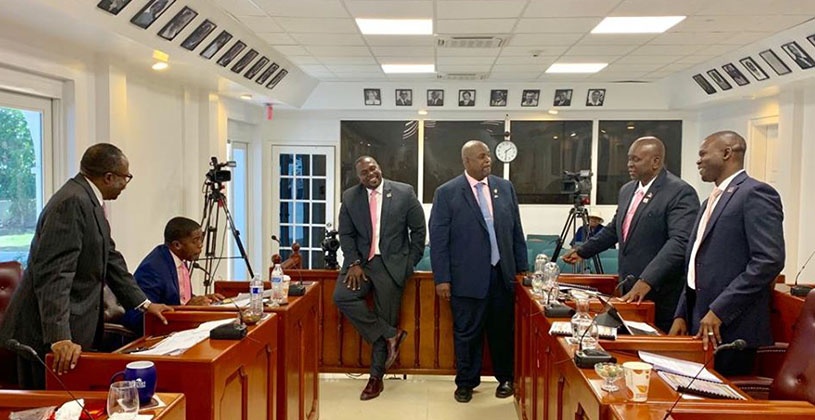
(PLTM) - The executive summary of the Commission of Inquiry (CoI) report is clear that in the Virgin Islands public sector, mismanagement is deeply entrenched. More alarming is that fact that this alleged culture of mismanagement is showing little signs of improvement.
In fact, these issues have multiplied throughout the years.
These observations were pointed out by The Rt. Hon. Sir Gary Hickinbottom, who produced the report .
"Whilst the evidence suggests that they have worsened over time, these gross deficiencies in governance have afflicted almost all recent government Ministries, over different administrations. The BVI electorate, hoping for better from the next elected administration, have been consistently let down,” Hickenbottom stated.
He expresses that this concerning situation raises serious questions about why this has been the case.
“Why has governance been allowed to languish in such a parlous state?” he asked in the Commission of Inquiry (CoI) report.
Blame The Governors
He explained that the elected Ministers of Government at the time of the CoI proposed that the main reason for the ineffective management within the Public Service was due to incompetence.
They note that staff was under-qualified, under-trained, under-resourced and they attributed these inadequacies to the neglect of former successive Governors.
According to the CoI report, the elected members of government criticized the regulatory framework utilized in the public service, because it lacked the required policy making and policy implementation abilities which would be necessary for the government to operate effectively.
However, in contrast to the members of the Government’s claims, Commissioner Hickinbottom stated that the evidence simply does not support such assertions.
"No doubt the Public Service – like many around the world – would benefit from more resources and a programme of reform better to deal with today’s world; but, that notwithstanding, it is clear that the BVI Public Service has some eminently able, well-qualified and excellent personnel particularly at high level,” the report concludes
Hickenbottom further explains that even though the Governor is responsible for the terms and conditions of public officers, like supplying them with additional resources, for example, a salary increase, the elected Government officials have the authority to finance such initiatives.
Similarly, in relation to the outdated functions and operations that were complained about by the then ministers, the decision on policy reform for the Public Service, is solely up to Government. He further explained that allocating financial resources to modernize the public service operations was again at the discretion of elected members of Government.
Hickenbottom further argued against the excuses provided by Government ministers by presenting that Government could have opted to appoint Ministerial Political Advisers at any time, instead it was only a decision that was recently made.
"So far as policy implementation is concerned, the elected Government has always been able to prioritise the Public Service for resources, but it has generally declined to do so in the face of encouragement by successive Governors to take steps to enable the Public Service to perform its functions better,” Hickenbottom stated.
